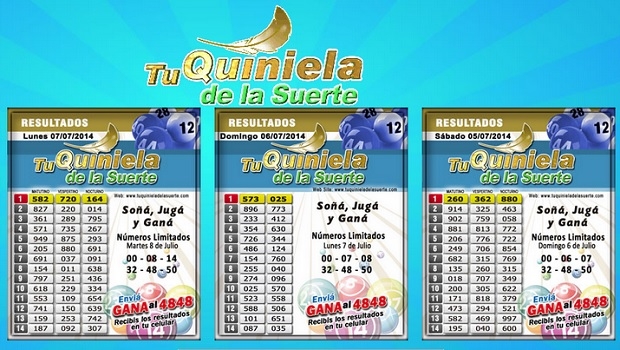Gambling Sa Paraguay
- < Previous Event
- Next Event >
Peroni Sosa Tellechea Burt & Narvaja advised Vimerica S.A. On the authorization process Vimerica Development LLC, Through Vimerica S.A. In joint venture with Paul Steelman, CEO. This section of World Casino Directory deals specificially with South American casinos and gambling. The continent of South America has 9 countries with casinos in them and 4 countries with pari-mutuel facilities in them, including horse racing and dog racing or the newer racinos which have slots or video poker terminals within reach of the gamblers. Gambling Sa Paraguay, top online gambling websites, fever bells slots, experienced poker tips. Read our full review. 18+, T&C Apply, New Customers Only.
Home > Division of Research & Economic Development > Gambling and Risk Taking Conference > 2019 ICGRT > MAY30 > 30
May 30, 2019
Submission Title
Session Title

Session 3-1-D: Gambling Market Case Studies
Presenters
Location
Caesars Palace, Las Vegas, Nevada
Start Date
30-5-2019 9:00 AM
End Date

30-5-2019 10:25 AM
Disciplines
Gaming Law | Tourism and Travel
Abstract
Gambling and tourism industries have been developed by South American governments as a way of generating jobs and revenues. Of all kinds of gambling activities, casinos are the most commonly associated with the hospitality industry. Hotel and resort casinos can be found in every SA country (Argentina, Bolivia, Chile, Colombia, Ecuador, French Guyana, Guyana, Paraguay, Peru, Suriname, Uruguay and Venezuela) except for Brazil, a two hundred million consumers market that prohibited casinos back in 1946. The purpose of this paper is to better understand the resort casinos evolution in these territories and also to compare legislation aiming to predict what might happen to the Brazilian gaming sector in the future as the issue has been strongly debated. The methodology by using internet data and scientific bibliography is presented in a chronological manner, highlighting the correlation between tourism statistics evolution and the number of resort casinos development in the studied countries for the past 20 years. The findings varied significantly by country, legislation and type of casinos enterprises. And considering that Brazil leads tourism statistics in SA, it can be concluded that hotel-casinos in this continent are more related to destination competitiveness, entertainment and an integrated resort image, rather than international travel arrivals and income.
So what
The originality of this presentation is to identify turning points that have helped to shape the development of South America gambling and tourism industry, so encourages researchers and legislators to compare and to consider future scenarios concerning to the role of these economic activities in each country.
Keywords
Gambling; Tourism; Resort Casino; Legislation; South America.
Gambling Sa Paraguay Noticias
Author Bio

Ph.D. in Tourism Planning and Management – Malaga University – Spain;

Professor at the Positivo University and Parana Federal University – Curitiba – Brazil;
President of the Curitiba Convention & Visitors Bureau 2011-2014;

Started studying the relationship between casinos and tourism industry in 1998 in his Master’s degree in the Las Palmas de Gran Canaria University, oriented by professors Bill Eadington and José Manoel Gândara.
BO JASON BERNHARD
Ph.D. in Sociology - UNLV;
Philip G. Satre Chair, UNLV and University of Nevada, Reno; Executive Director, UNLV International Gaming Institute;
Professor, Department of Sociology, UNLV;
Professor, College of Hospitality, UNLV.
Gambling Sa Paraguay En Vivo
JOSÉ MANOEL GÂNDARA
Ph.D. in Tourism Sustainable Planning – Las Palmas de Gran Canaria University – Spain;
Professor at the Parana Federal University – Curitiba – Brazil;
Emeritus Researcher by the Tourism Research National Association – 2018.
Has been studying and working with tourism resorts and destinations since 1984.
Gambling Sa Paraguay Currency
Master in Tourism - Parana Federal University – Curitiba – Brazil;
Professor at the Positivo University – Curitiba – Brazil;
Has been working with events and hotels management and poker gaming enterprises since 2006.
Included in
Gaming Law Commons, Tourism and Travel Commons
COinSMay 30th, 9:00 AMMay 30th, 10:25 AMGambling and Tourism in South America: an analysis of resort casinos evolution and legislation comparison in the continent
Caesars Palace, Las Vegas, Nevada
Gambling and tourism industries have been developed by South American governments as a way of generating jobs and revenues. Of all kinds of gambling activities, casinos are the most commonly associated with the hospitality industry. Hotel and resort casinos can be found in every SA country (Argentina, Bolivia, Chile, Colombia, Ecuador, French Guyana, Guyana, Paraguay, Peru, Suriname, Uruguay and Venezuela) except for Brazil, a two hundred million consumers market that prohibited casinos back in 1946. The purpose of this paper is to better understand the resort casinos evolution in these territories and also to compare legislation aiming to predict what might happen to the Brazilian gaming sector in the future as the issue has been strongly debated. The methodology by using internet data and scientific bibliography is presented in a chronological manner, highlighting the correlation between tourism statistics evolution and the number of resort casinos development in the studied countries for the past 20 years. The findings varied significantly by country, legislation and type of casinos enterprises. And considering that Brazil leads tourism statistics in SA, it can be concluded that hotel-casinos in this continent are more related to destination competitiveness, entertainment and an integrated resort image, rather than international travel arrivals and income.
So what
The originality of this presentation is to identify turning points that have helped to shape the development of South America gambling and tourism industry, so encourages researchers and legislators to compare and to consider future scenarios concerning to the role of these economic activities in each country.
